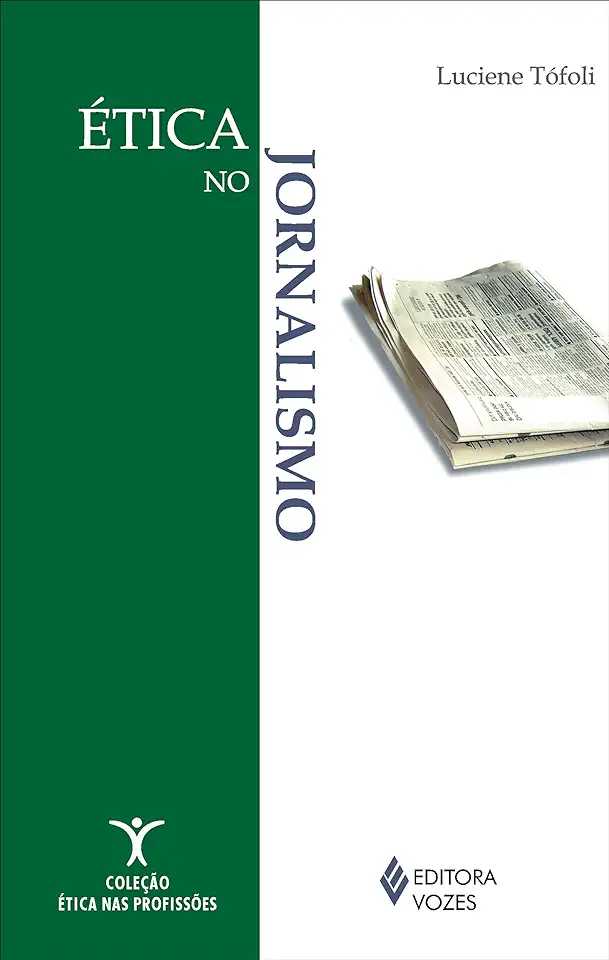
Journalism Ethics - Luciene Tófoli
Journalism Ethics: A Comprehensive Guide for Journalists and Communicators
Introduction
In the ever-changing landscape of journalism, where information spreads like wildfire and ethical dilemmas arise at every turn, "Journalism Ethics" by Luciene Tófoli emerges as an indispensable guide for journalists, communicators, and anyone committed to responsible reporting. This comprehensive book delves into the complex ethical challenges faced by media professionals and provides a roadmap for navigating these challenges with integrity and professionalism.
Key Features:
Comprehensive Coverage: Tófoli's book covers a wide range of ethical issues, from the basics of truthfulness and accuracy to more nuanced topics such as privacy, confidentiality, and conflicts of interest. Each chapter provides a thorough exploration of a specific ethical dilemma, offering real-world examples and case studies to illustrate the complexities of ethical decision-making in journalism.
Practical Guidance: More than just a theoretical exploration of ethics, "Journalism Ethics" offers practical advice and strategies for journalists to navigate ethical dilemmas. Tófoli provides a framework for ethical decision-making, helping journalists identify and weigh the ethical implications of their actions and make informed choices that uphold the highest standards of journalism.
Global Perspective: The book takes a global perspective on journalism ethics, recognizing that ethical challenges vary across cultures and contexts. Tófoli draws on international case studies and examples to demonstrate how ethical principles can be applied in different settings, ensuring that the book's insights are relevant to journalists worldwide.
Engaging Writing Style: Tófoli's writing style is engaging and accessible, making "Journalism Ethics" a pleasure to read. She presents complex ethical concepts in a clear and concise manner, ensuring that readers can easily grasp the key points and apply them to their own journalistic practice.
Why You Should Read This Book:
Stay Ahead in the Digital Age: In the era of fake news and misinformation, ethical journalism is more important than ever. "Journalism Ethics" equips you with the knowledge and skills to navigate the ethical challenges of the digital age and maintain the credibility of your work.
Build Trust with Your Audience: Ethical journalism builds trust with your audience, leading to increased readership, engagement, and loyalty. By demonstrating your commitment to ethical principles, you can establish yourself as a credible and reliable source of information.
Protect Yourself and Your Organization: Ethical lapses can have serious consequences for journalists and media organizations, including legal liability, loss of reputation, and damage to credibility. "Journalism Ethics" helps you avoid these pitfalls and protect yourself and your organization from ethical missteps.
Contribute to a More Informed Society: Ethical journalism is essential for a well-informed society. By upholding ethical standards, you contribute to the dissemination of accurate and responsible information, empowering citizens to make informed decisions and hold those in power accountable.
Conclusion:
"Journalism Ethics" by Luciene Tófoli is a must-read for journalists, communicators, and anyone committed to responsible reporting. Its comprehensive coverage of ethical issues, practical guidance, global perspective, and engaging writing style make it an invaluable resource for navigating the complex ethical challenges of journalism in the 21st century. Invest in your professional development and the future of journalism by getting your copy of "Journalism Ethics" today.
Enjoyed the summary? Discover all the details and take your reading to the next level — [click here to view the book on Amazon!]